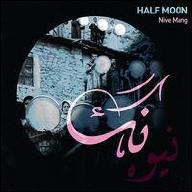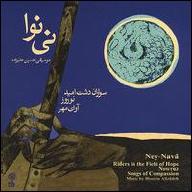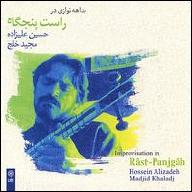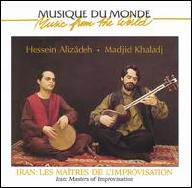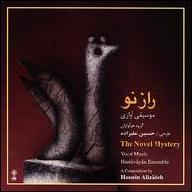Alizadeh was destined to become a musician. His mother, a Persian from Arak, and his father, an Azeri from Urmia, both loved music. In 1962, shortly after seeing his first tar in a Tehran music store, Alizadeh began taking lessons in the instrument. By his late teens, he had mastered the stringed instrument. His knowledge of music was further expanded during the childhood summers that he spent in Tabriz and Urmiya, two major cities of the Azerbaijoni region of Iran. Tuning into a radio station from Soviet Azerbaijoni, he became enchanted by Azerian music.
Following his graduation from a high school-level music conservatory, Alizadeh worked as a composer at the Center for the Intellectual Development of Children in Tehran, studied at the Center for the promotion of Classical Persian Music and attended art college. After earning a bachelor's degree in music composition and performance from the School of Music at the University of Tehran, he continued with graduate studies at the University of Fine Arts in Tehran. In the aftermath of the Islamic revolution of 1979, Alizadeh became increasingly interested in Azerian music and went to Tabriz to study with Ali Salimi.
Alizadeh began his professional musical career with the Iranian National Orchestra, rising to the position of conductor and soloist of the National Orchestra of Radio and Television of Iran. He continued to promote Persian classical music with the Aref Ensemble and the Shayda Ensemble. Alizadeh's first professional experience in Europe came when he joined the orchestra of the Bejart Ballet Company for performances of the Maurice Bejart ballet, "Gulistan." In the early 1980s, Alizadeh studied composition and musicology at the University of Berlin. Alizadeh has taught at the University of Tehran and the Tehran Music Conservatory. In the fall of 1997, he taught world music at Cal Arts in Velencia, CA. ~ Craig Harris, Rovi


